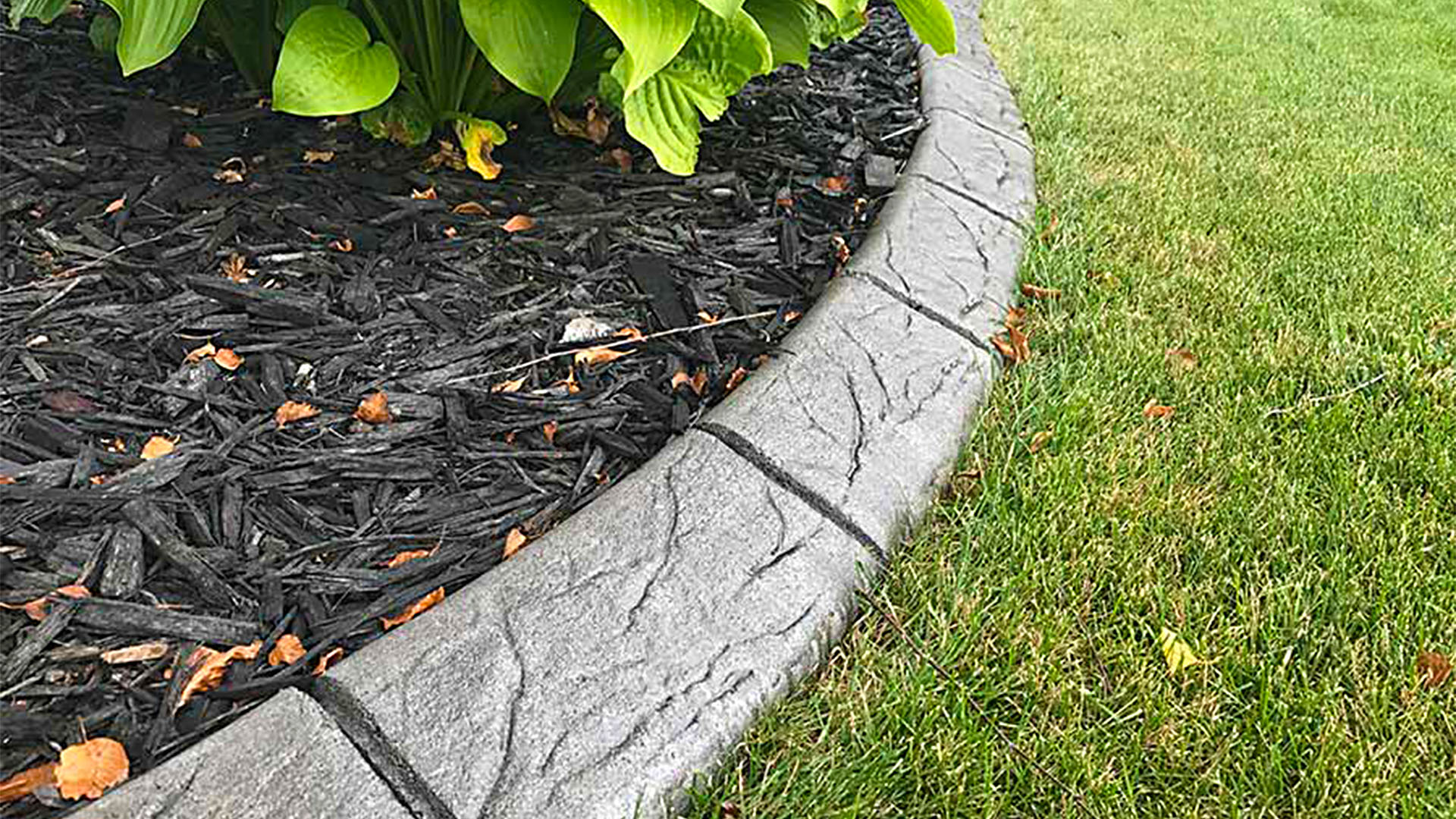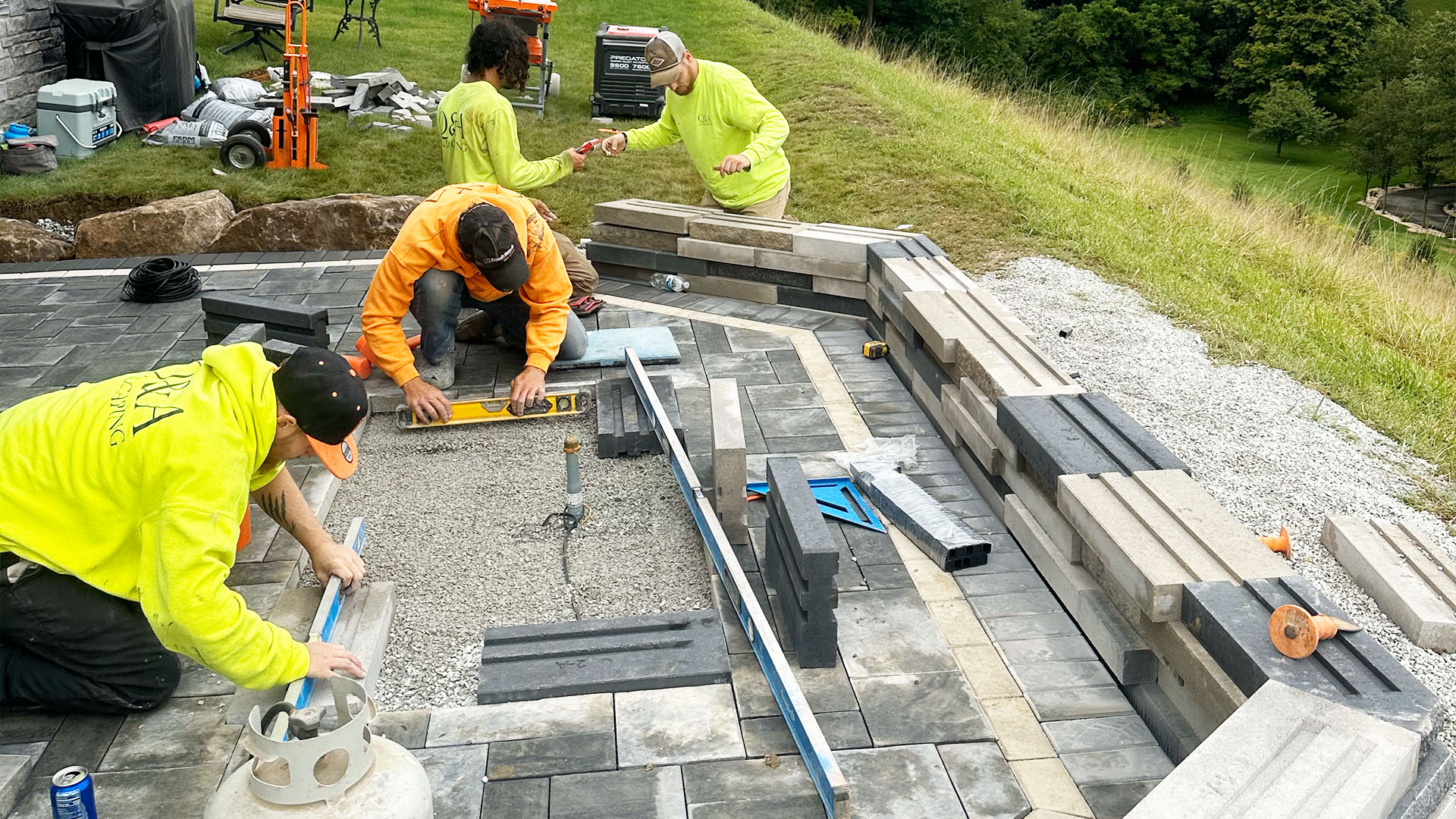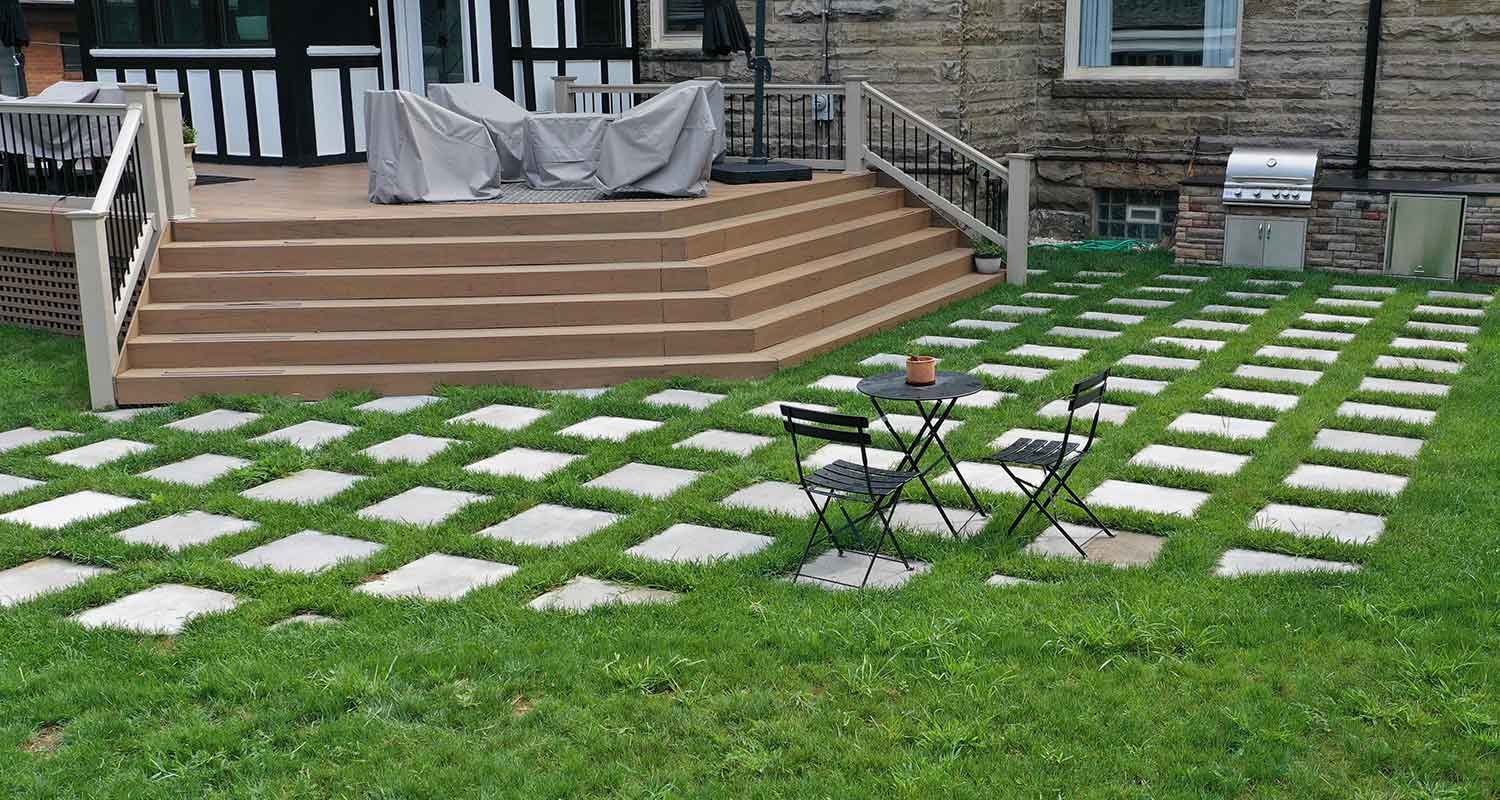Retaining walls can offer huge benefits to sloping landscapes. Hilly terrains require structural support in order to keep soil in place so your landscape doesn’t slide forward and turn into a landslide.
Retaining walls are a mark of beauty and utility. Whether you need to hold a stretch of landmass back or just want an aesthetic-looking driveway, you came to the right place. This essential guide will serve as the most crucial aspects to consider when it comes to building retaining walls.
The first step in every retaining wall journey is to pick a spot & draw up some dimensions. Once you have a location in mind for your wall, come up with a plan that includes the right materials and brand for your wall. Consider what you'll use for drainage aggregate & compacting equipment. Retaining walls must be durable and long-lasting to keep your yard looking its best; that’s why we opt for VERSA-LOK segmental retaining wall units and incorporate Geogrid for the best results.
Pro Tip: Most yards with soft soil require initial soil reinforcement to prevent erosion. If you live in an area that tends to have softer soil, choosing the correct material & reinforcement could make or break your wall.
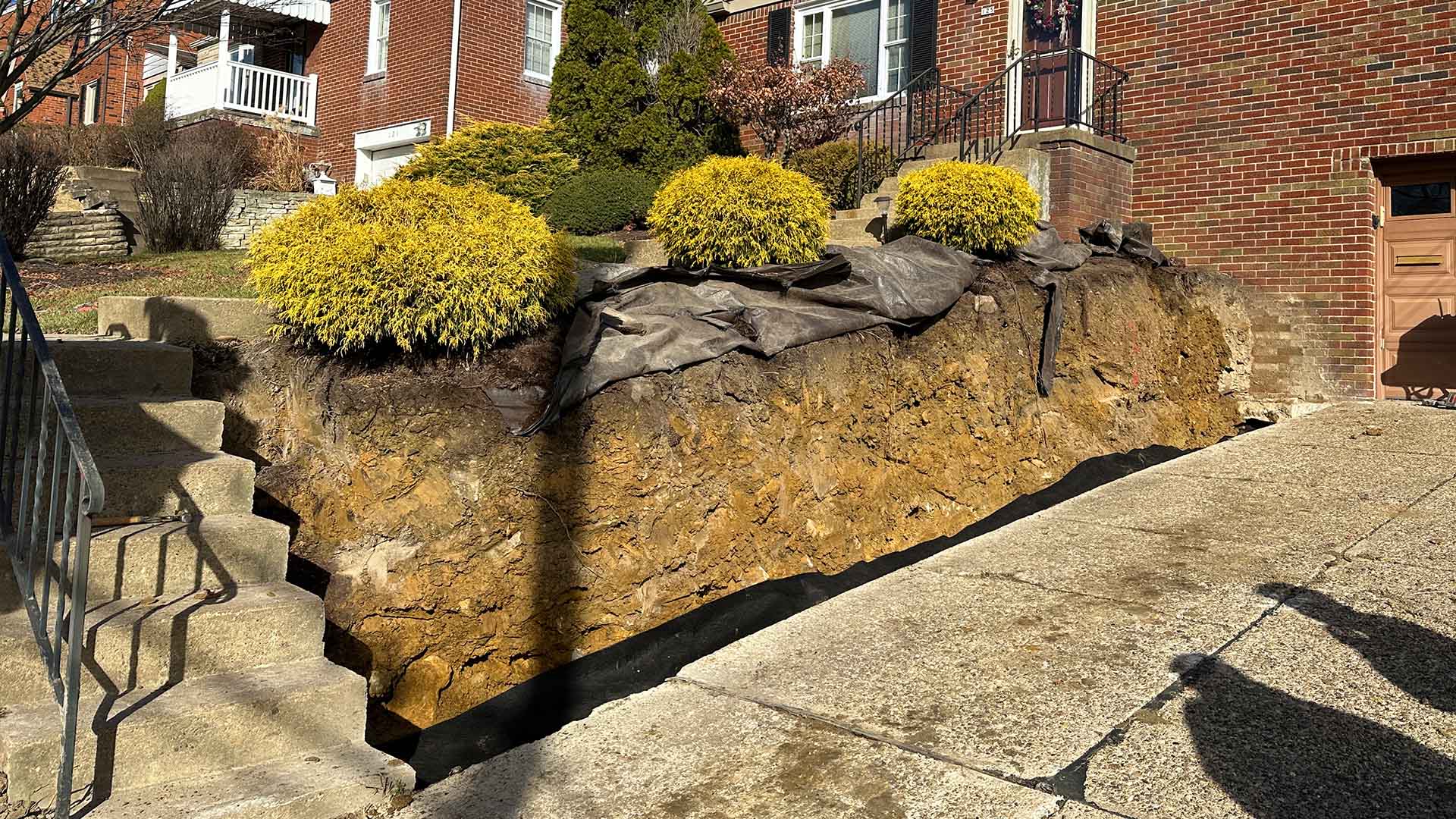
A fundamental principle of retaining wall construction is to counteract the lateral pressure exerted by the soil. In cases where the weight of the retaining wall units alone can't withstand the force of an unstable soil wedge or additional loads, geogrid soil reinforcement steps in.
Geogrids are horizontal layers of fabric designed to provide tensile strength, effectively bonding the reinforced soil mass together. Geogrid mesh is added between layers of compacted soil to enhance stability and resistance against pressures from behind.

We build retaining walls for our clients on a compacted stone base. Compaction is the most important part of the job. Failure to thoroughly compact the base is devastating to the longevity and appearance of a Versa-Lok retaining wall.
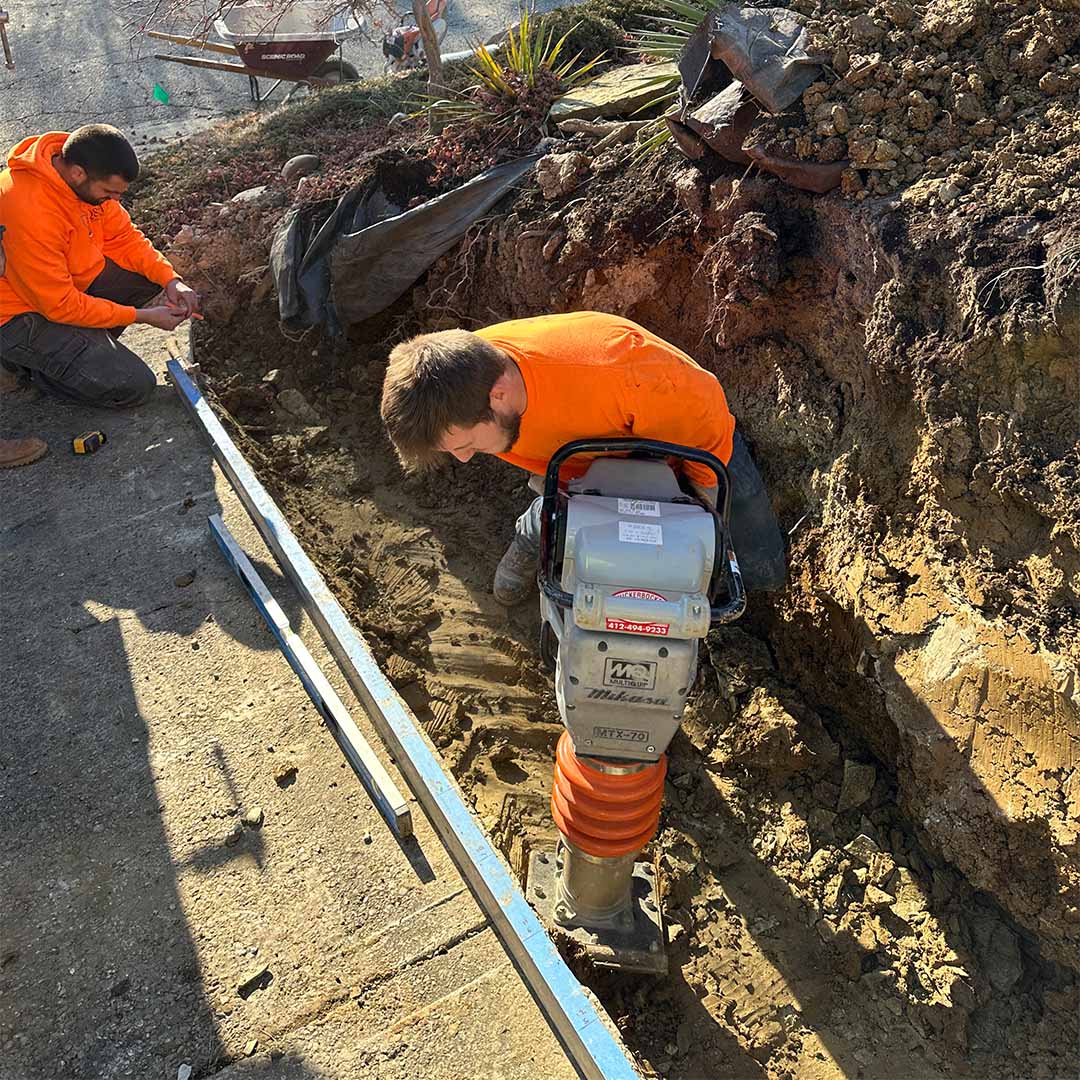
A drain is installed behind the wall along the bottom, and then we fill behind the wall with clean 2b limestone.
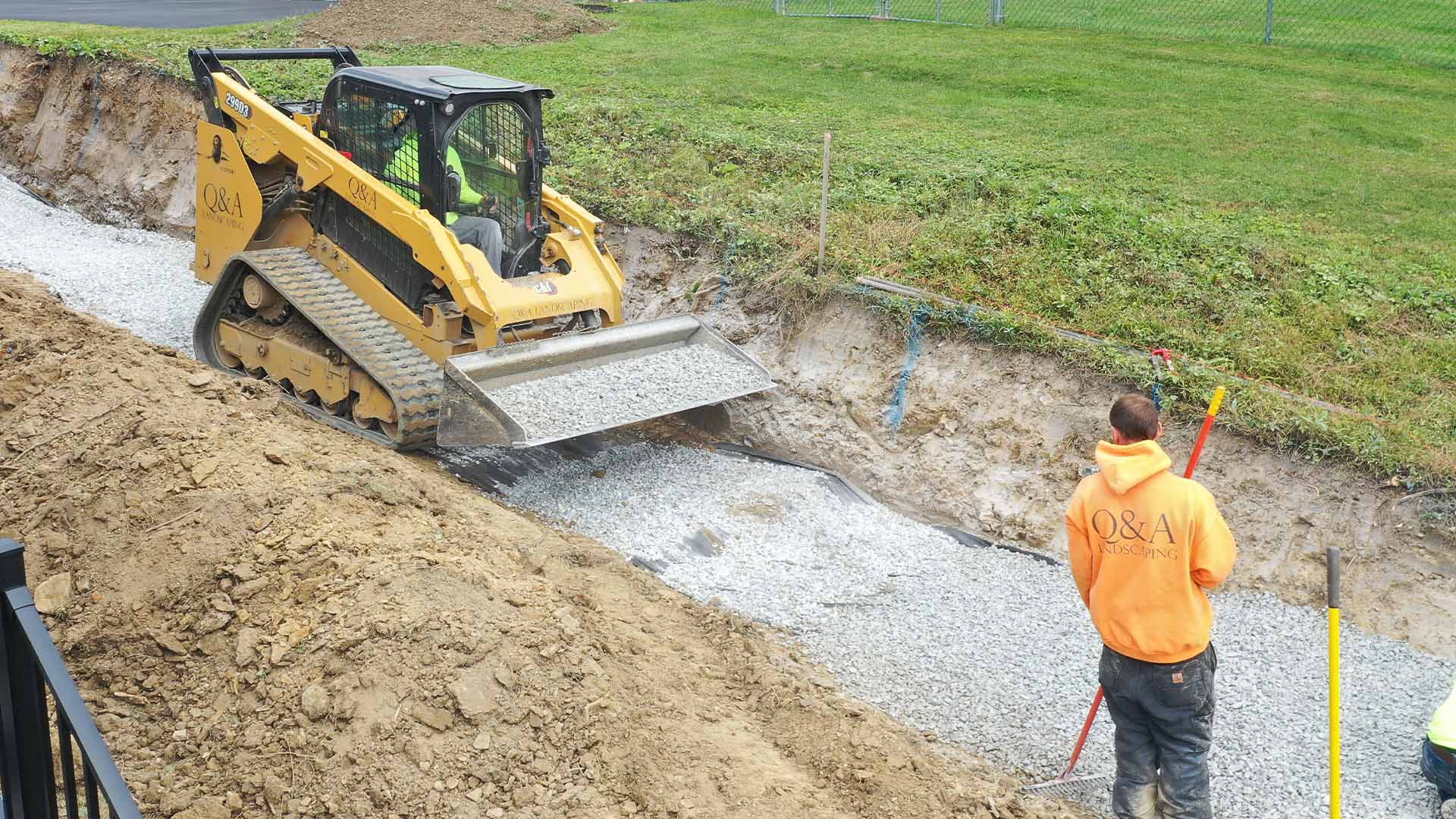
We utilize geogrid for retaining walls where applicable to increase strength by anchoring the wall to the backfill behind it. The heavy-duty net-like fabric is laid between two rows of blocks and then stretched back into the hillside behind.
The fabric is then covered with the next lift of stone backfill and the process is repeated a few times per wall depending on height. The weight of the soil behind the wall prevents it from bowing out.
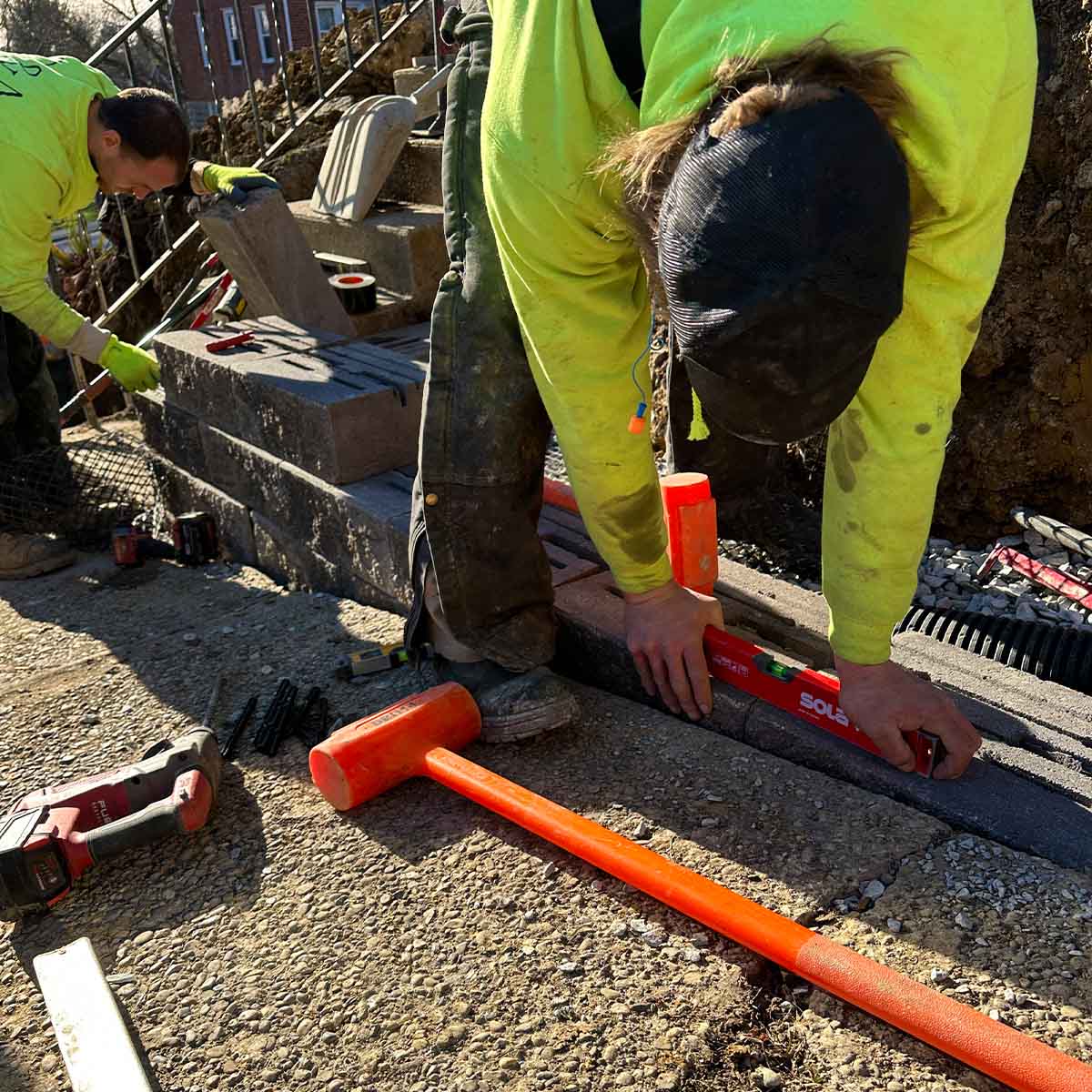
Versa-Lok blocks are the most structural and cost-effective option for retaining walls. They come in different colors allowing you to customize your wall at similar prices. The blocks pin together and are very heavy working to maximize the lifespan of your wall. But, they must be built correctly by a professional to get the most out of it.
No two yards are alike, and blocks may need to be cut to accommodate your retaining wall’s design. You must have the right tools and be extremely careful when cutting blocks in order to prevent injury. It’s recommended to leave block cutting to professionals that use a block cracker so they will have a finished rough face like the front of the block.
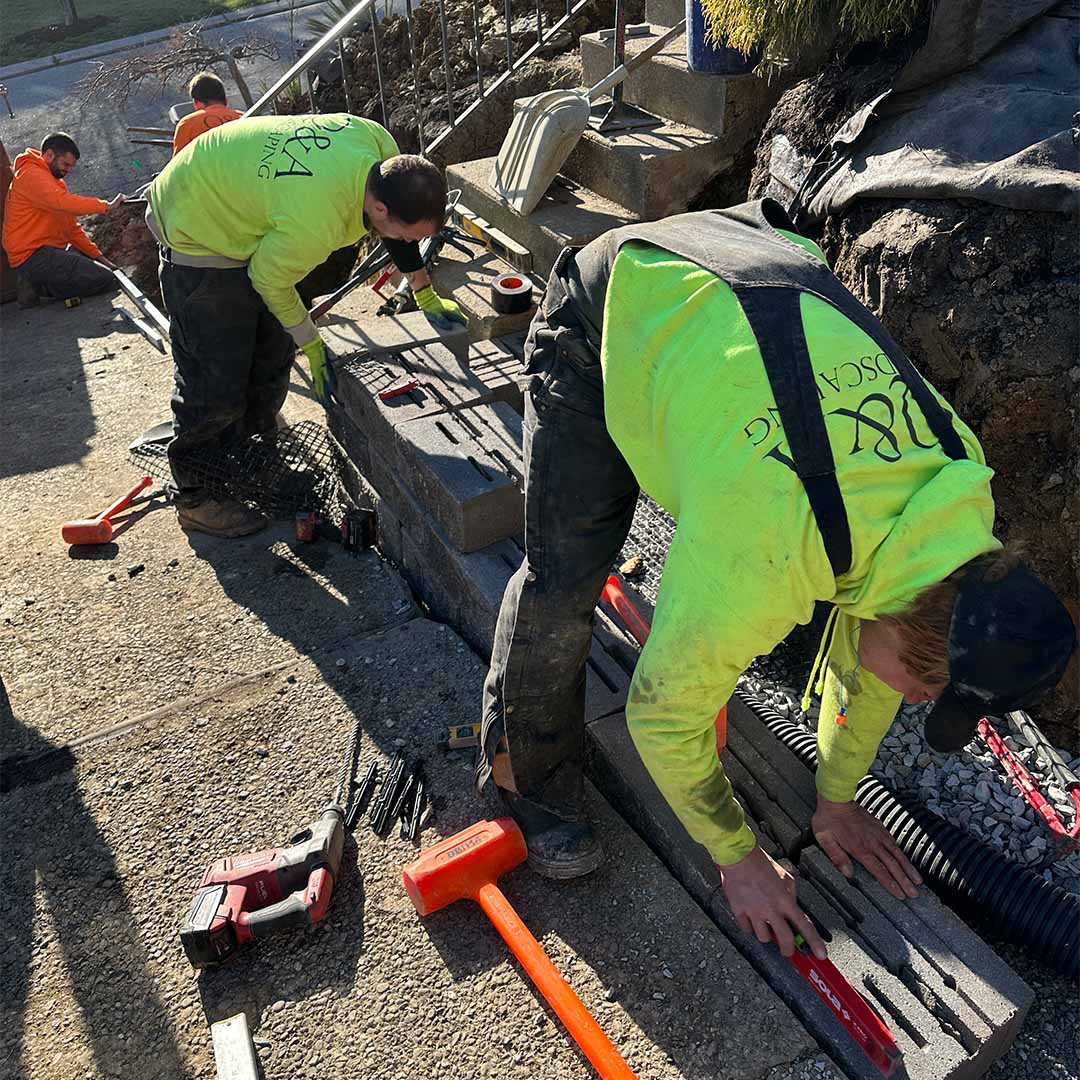
Retaining wall caps are a prominent consideration on the home stretch. Sometimes we do caps one shade darker than the wall block if a client is looking for a little more variation and unique design. We are also able to build under cap lighting into retaining walls if desired to elevate your landscape and add dimension.
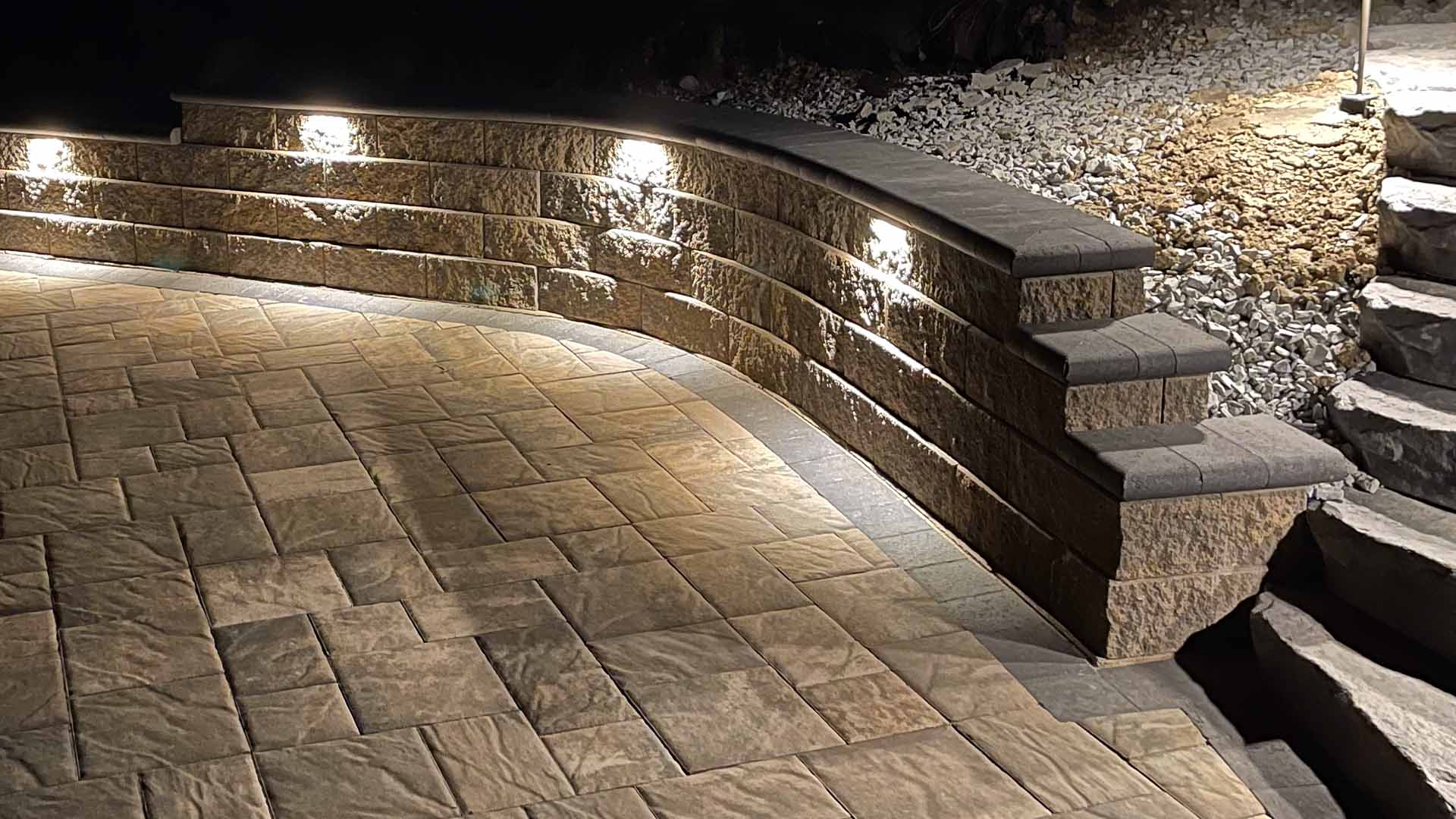
We strive to customize your landscape to your yard’s needs while incorporating your design ideas. If you’re ready to work with a Pittsburgh landscaping team that can curate the perfect landscape design just for you, contact us today for a free consultation.

